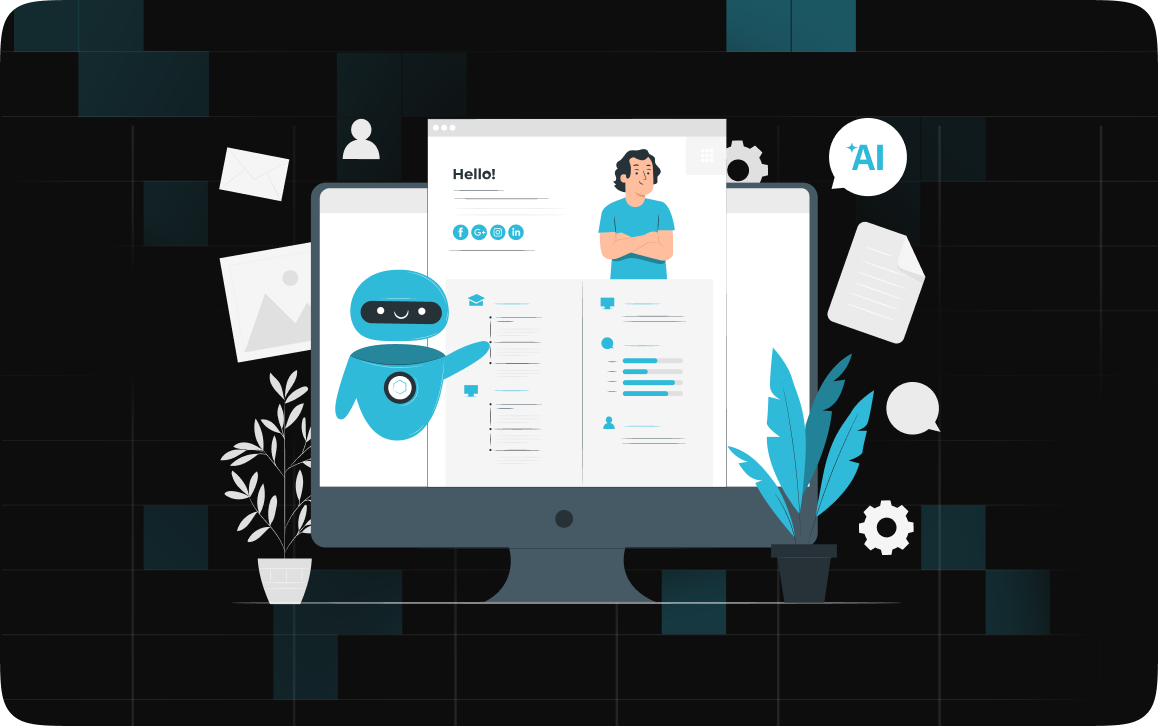How AI Powered Resume Screening Shapes Hiring Practices
Read Time
10 minutes
Updated On
January 9, 2026
.jpeg)
Ruchi Kumari
Content & Thought Leadership

You've got 500 resumes on your desk, the hiring manager is breathing down your neck, and the perfect candidate could be buried anywhere in that stack. Sound familiar? This is the daily grind for recruiters and HR professionals worldwide. But what if there was a way to find your ideal candidates in minutes instead of days?
Enter AI powered resume screening, the revolutionary technology that's transforming how we hire, one algorithm at a time.
AI resume screening is like having a super-powered assistant that never gets tired, never has a bad day, and can read faster than any human ever could. It's an automated process that uses artificial intelligence to evaluate, rank, and filter resumes based on predetermined criteria.
Think of it as your personal hiring detective, it scans through resumes, identifies the best matches for your open positions, and presents you with a shortlist of candidates who actually fit what you're looking for. No more needle-in-haystack hunting!
The technology combines natural language processing (NLP), machine learning, and pattern recognition to understand resume content just like a human recruiter would, but at lightning speed and with consistent accuracy.
The magic of AI based resume screening happens in four simple steps:
.jpg)
Step 1: Data Ingestion The AI recruiter agent ingests resumes in various formats (PDF, Word, plain text) and converts them into a structured format it can analyze. It's like having a universal translator for all resume formats.
Step 2: Information Extraction Using NLP, the system identifies and extracts key information such as:
Step 3: Matching and Scoring The AI recruiting agent compares extracted information against your job requirements and assigns scores based on relevance. It considers factors like skill matches, experience level, education requirements, and keyword density.
Step 4: Ranking and Filtering Finally, candidates are ranked from highest to lowest match percentage, giving you a prioritized list of the most promising applicants.
Traditional method: 23 minutes per resume (industry average) AI method: Seconds per resume
While you're still reading the first page of a resume, AI has already processed 100 others. For high-volume hiring, this isn't just convenient, it's revolutionary. Companies report reducing their initial screening time by up to 75%.
Human recruiters have bad days, get tired, and sometimes miss great candidates buried in resume #247. AI powered resume screening doesn't. It applies the same criteria consistently to every single resume, ensuring no qualified candidate slips through the cracks due to human fatigue or bias.
.jpg)
AI based resume screening focuses on qualifications and skills rather than names, photos, or other potentially biasing information. While not perfect, properly trained AI systems can help reduce unconscious bias in the initial screening phase, promoting more diverse hiring.
The numbers speak for themselves: reducing time-to-hire by even a few days can save thousands in productivity costs and prevent revenue loss from unfilled positions. AI-powered resume screening tools streamline the recruitment process, cutting down on manual hours and allowing HR teams to focus on high-value tasks.
According to LinkedIn, these tools not only boost hiring speed but often pay for themselves within months, making them a smart investment for organizations looking to optimize efficiency and keep CFOs smiling.
.jpeg)
Unilever, the global consumer goods giant, faced a massive challenge: screening over 1.8 million applications annually for their graduate programs. Their traditional process was drowning HR teams and creating bottlenecks.
The Solution: They implemented AI-powered resume screening combined with digital interviews and gamified assessments.
The Results:
The most impressive part? They maintained the same quality of hires while processing significantly more applications. This isn't just efficiency, it's transformation.
Concern: "AI will replace human recruiters entirely"
Reality: AI handles the grunt work, freeing you for strategic tasks like relationship building, cultural fit assessment, and final decision-making. You're still the conductor; AI is just a better instrument.
Concern: "AI might miss great candidates with non-traditional backgrounds"
Reality: Modern AI systems can be trained to recognize transferable skills and diverse career paths. The key is proper configuration and ongoing refinement.
Concern: "It's too expensive for small companies"
Reality: Many AI screening tools now offer affordable, scalable solutions starting at under $100/month. The ROI often justifies the investment within the first few hires.
Concern: "Legal and ethical issues around AI bias"
Reality: While bias can be an issue, properly implemented AI often reduces bias compared to human screening. Regular auditing and diverse training data are crucial.
Concern: "Candidates will hate the impersonal approach"
Reality: Candidates actually prefer faster response times and consistent communication. AI enables quicker feedback and more efficient processes.
AI powered resume screening isn't just another tech trend, it's the future of efficient, fair, and effective hiring. While it won't replace the human touch entirely, it will free you from mundane tasks and let you focus on what humans do best: building relationships and making nuanced decisions.
The question isn't whether AI resume screening will transform hiring practices, it already is. The real question is: Will you be leading the charge or playing catch-up?
Start small, choose the right tool for your needs, and remember that AI is here to augment your expertise, not replace it. Your future self (and your sanity) will thank you.
